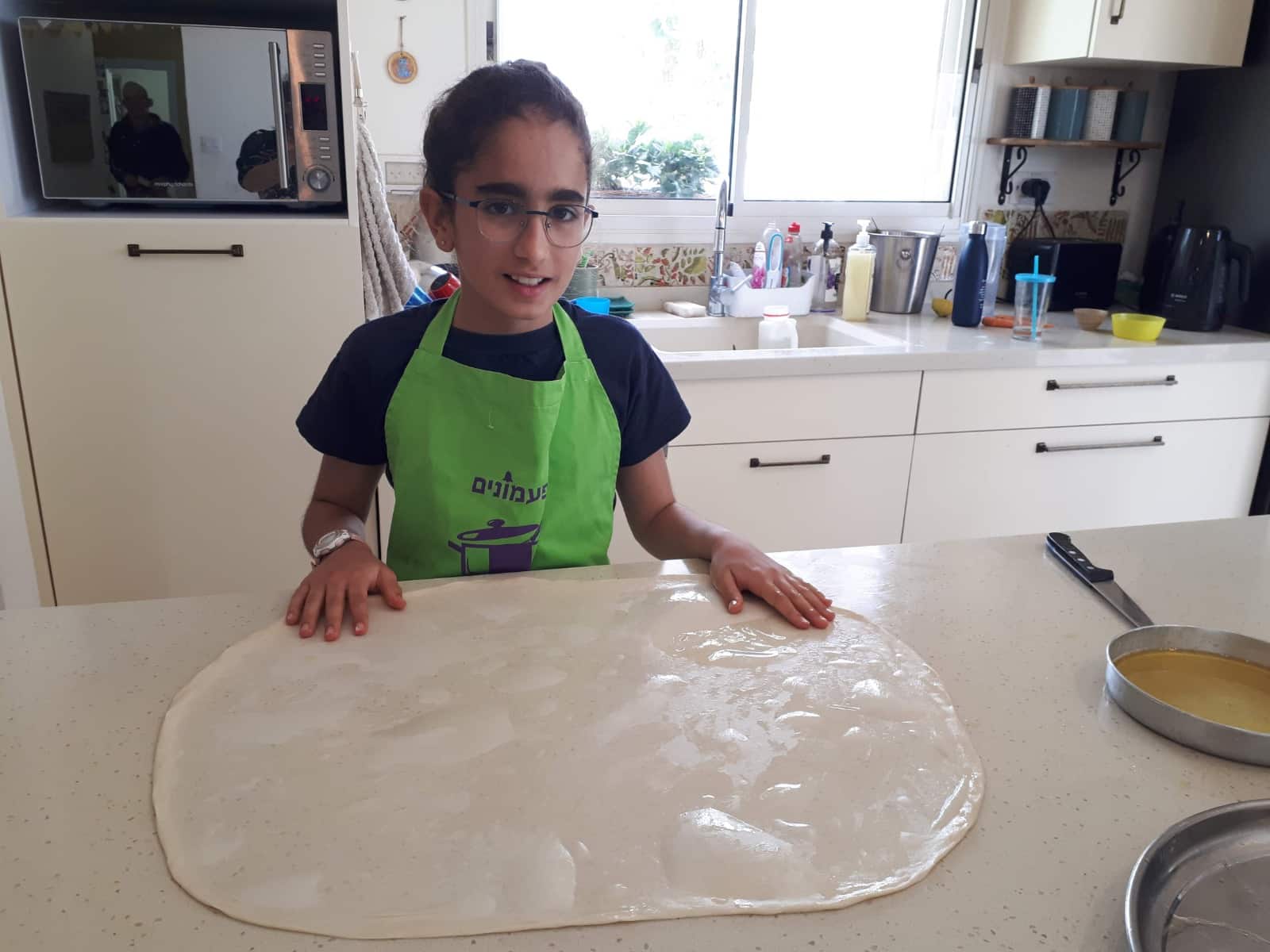Without us noticing, the coronavirus vacation was replaced by the summer vacation, and thousands of middle and high school students went on vacation.
This year, youth employment opportunities have shrunk, but that hasn’t stopped many youth from taking the initiative, starting their own business and finding original ways of income.
We spoke with 5 of them, who opened a business, earn money and play in the big leagues – Amitai Landau (18) Malon Shvut sells flowers door to door, Keren Marcuse (16) from Givat Shmuel started a hairstyle business for events, her brother Orlinsky (14.5) from Petach Tikva who owns a business renting amplification and lighting equipment, Roni (14) and Ayelet (11) Madmoni from Beit Kama prepare and sell Jahanunim.
How did it all begin?
In the case of Karen and her brother, school was the springboard for business –
Karen: “At school I would always do hairstyles for all my friends during recess, and over time girls from other classes and even other classes I didn’t know started coming to me. Towards the end of the year, some girls from the class below me asked me to do hairstyles for them at a graduation party they throw at the end of the year for a fee, and I accepted the idea. From there it spread by word of mouth and I started taking orders. The more experience I gain, the more orders I have.”
Her brother: “When I was in fourth grade, I helped set up amplification and lighting for the ceremony at school, and that’s how I was first exposed to the profession. At first, I purchased small speakers and amateur equipment, and slowly I became more professional and purchased more expensive and high-quality equipment. Today I have professional amplification systems for rent, and I work in cooperation with other professionals in the field.”
For Roni and Ayelet, it all started at home: “We learned how to make Jahnun from our father. After practicing and learning how to make delicious Jahnun, we held a sale, made money, and decided we wanted to continue.”
Amitai also says that the support from home is what made him open the business – “The business was born after the support of my family, and the impression of selling flowers in the area.”

How did you learn the skills required to operate the business?
Keren says that she mostly learned from personal experience and from her mistakes, “During the experience I understood how it works, I learned from mistakes I made such as a free trial hairstyle and double booking (we all came out of it safely and with a hairstyle on our heads). Over time, I made adjustments to my pricing, learned to manage my time and record everything in a diary.”
On the other hand, her brother actually learned from the experience of others: “I started working as an apprentice to a professional in the field and he taught me the secrets of the profession.”
In Roni and Ayelet’s case, everything remained in the family, “Dad taught us how to make gehanunim and our mother taught us how to develop a business such as calculating expenses, time management, planning versus execution and more.”
Do you see yourself working in this field as an adult?
Keren, Ayelet and Roni do not see themselves continuing this occupation in adulthood. Karen: “I don’t see hairstyles as a major concern in my future, maybe as extra income on the side. But it will always remain a major hobby of mine.”
Ronnie: “I don’t see my future in selling Jahanunim. Maybe I’ll go back to doing it before the big post-army trip, in order to earn money to finance the trip.”
For her brother, the future is already here, “my dream is to amplify and light large shows at the Caesarea Amphitheater.”

How did the parents react to the idea? Did they support opening the business?
“My parents were afraid that I would enter the homes of unfamiliar people, so at first I only went to people I knew. Over time, I gained confidence and courage, but to this day it scares me a little. My parents were very supportive of the idea and also helped me promote it and gave me advice on operating and pricing the business.”
With Roni and Ayelet, the parents take an active part in the business: “They proposed the idea and were very supportive of us along the way.”
Amitai’s parents were also an inseparable part of the business: “My parents were very supportive and helpful to me, and were partners in all stages including crises.”
And what about marketing the business…
As expected of teenagers, marketing methods focus mainly on digital platforms, and less on traditional marketing channels. Keren operates business Facebook andInstagrampages, and also recruited her mother to advertise for her in a localFacebookgroup of mothers, her brothers Ayelet and Roni mainly use WhatsApp.
In Amitai’s case, marketing is an inseparable part of the job: “Marketing is done as you go, I reach more families and offer the service, or families recommend you out of familiarity.”

What did you learn from starting and managing the business?
Amitai: “I learned that business requires a lot of self-discipline, and requires not giving up for the goal, even though it’s a little difficult.”
Karen: “I learned about myself that I can learn the required skills on my own. And from a business standpoint, I learned to manage my time correctly and also learned to cooperate with my competitors.”
Roni and Ayelet: “Stop from time to time and measure cost versus benefit, think about whether it was worth starting a business, whether it justifies the time and money we invest in it.”
Her brother: “The beginning is not simple, and requires investment and effort. But in the end, you overcome the challenges and enjoy the journey.”
What is your recommendation for other teens who have initiative or want to start a business?
Roni and Ayelet recommend: “Develop financial independence. Don’t depend on your parents financially and managerially, learn to manage on your own.”
Amitai: “We, the youth, have a lot of power in our hands. We are creative, uncommitted and surrounded by family and friends who can help and serve as a supportive environment. I also recommend not to disperse but to commit to one thing, because if we give up when it’s a little difficult, we’ll never reach the goal and won’t succeed in making the business prosper. Lastly, I would recommend thinking about how to move forward and develop, not leave a business in a static state.”
Keren: “I would recommend checking if there is a demand for the services they want to offer in the area, and if there are competitors and if so, how much they sell their services. But mostly just go with the dream and invest a lot because in the end it will pay off.”
Her brother: “You’ll save an initial amount of money, and with it you’ll make your dreams come true. Start small and from there – the sky’s the limit.”
Do you have anything else to say to the teens or parents reading this article right now?
Amitai explains that working at a young age has many advantages: “Beyond the money I earned, I received a life lesson in everything related to work and business. I’ve learned to appreciate money and how much effort it takes to earn it.”
I will share an important message for parents: “Behind every child who believes in himself there is a parent who believed in him before.”
Keren emphasizes that it is important to find a balance between work and studies, “I believe that doing something you love can create a nice income and also bring satisfaction, but it is important that it does not come at the expense of investing in studies because you have to give them priority.”
Roni and Ayelet conclude: “Find yourself a business you are good at and love and invest in it. It will pay off for many reasons, not just financially. This is an exceptional experience and familiarity with the business world, financial education at its best.”



